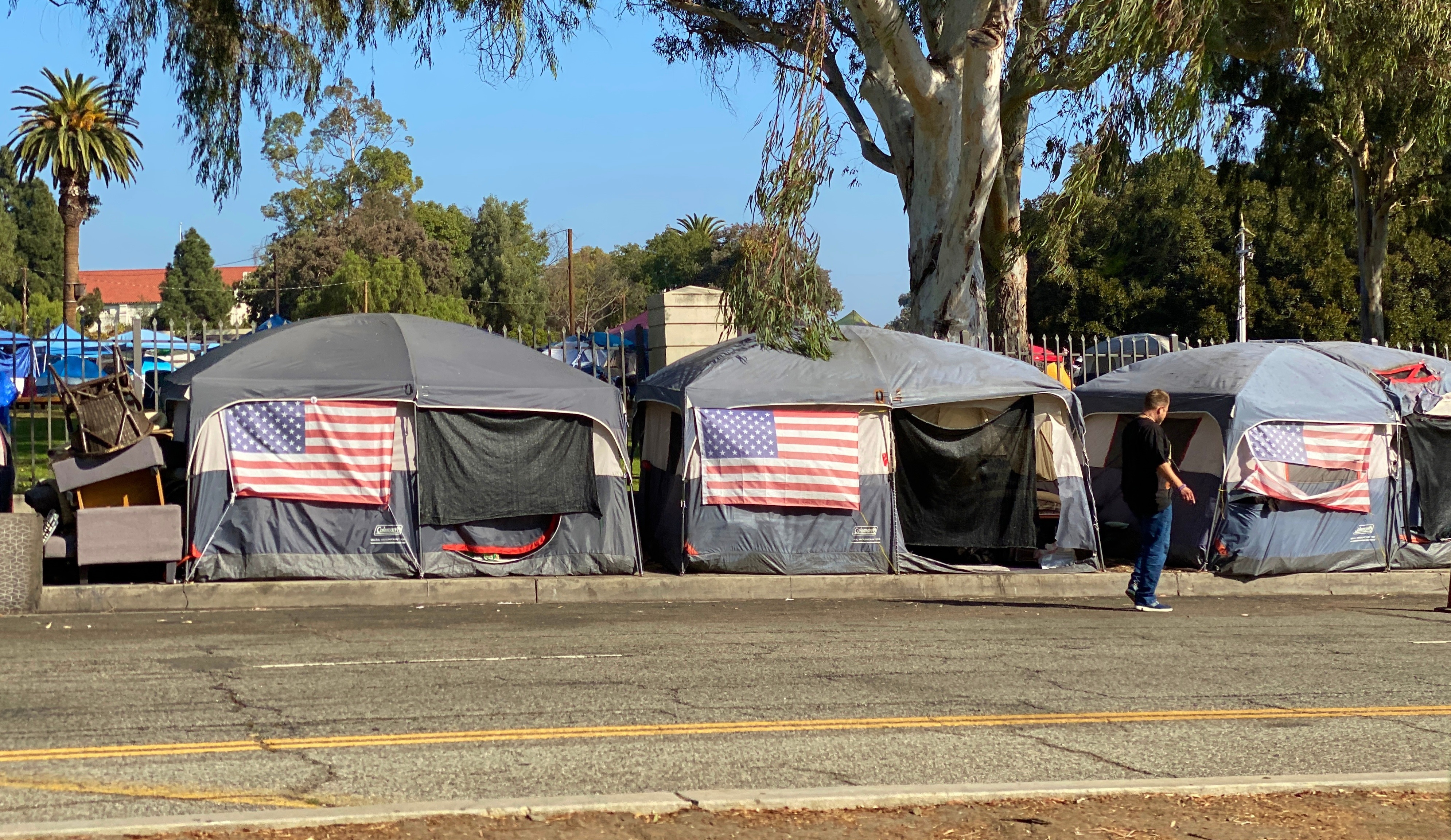VA Homeless Programs
VA’s Response Plan for Coordinating with Local Agencies During Homeless Encampment Closures

At VA we want to assure every Veteran that we are fully committed to ending Veteran homelessness. Our homeless program staff has been working proactively with community partners to identify potentially impacted Veterans and assist them with their needs as part of our outreach. We will continue to work with all Veterans facing homelessness to ensure every Veteran has a safe and secure place to call home.
VA, through the Homeless Programs Office (HPO), is implementing a comprehensive and proactive action plan to support Veterans impacted by current and future encampment closures. Concretely, this plan aims to support unsheltered Veterans living in encampments by:
- Providing them with same-day access to interim housing (e.g., emergency shelter, low-demand safe haven, and transitional housing).
- Connecting them to all necessary supportive services to obtain and maintain permanent housing.
- Preventing them from entering the criminal legal system.
To accomplish these aims, this plan intends to build upon existing strategies that support coordination with local agencies and encompasses 3 main national actions:
- Develop a nationwide inventory of current encampments and future closures.
- Activate national and local response teams.
- Disseminate national guidance on strategies to inform local action.
This plan will be updated regularly as new resource needs are identified and new partnerships are established.
VA is gathering information on planned encampment closures throughout the country. This information includes:
- The number of Veterans potentially affected.
- Expected closure timelines.
- Potential gaps or areas of need, emphasizing immediate access to interim housing and services.
The encampment inventory will also indicate current and future VA outreach efforts and how Veterans will be connected to VA care and housing resources if closures occur.
VA established an internal National Encampment Response Team to swiftly organize assistance for VA Medical Centers (VAMCs) needing guidance and technical assistance.
VA is also supporting the activation of local response teams to assist Veterans living in encampments with quickly moving into temporary housing options such as emergency shelter and transitional housing. These local response teams, which include VAMCs and VA-funded grantees and contractors from Supportive Services for Veteran Families (SSVF), Grant and Per Diem (GPD), and Health Care for Homeless Veterans (HCHV) Contracted Residential Services (CRS), must coordinate with existing community outreach teams to align resources, increase efficiency, and avoid duplication.
VA’s guidance and technical assistance for local teams include 5 national strategies to enhance the current response efforts. These strategies focus on:
- Strengthening outreach teams.
- Ensuring immediate same-day access to interim housing.
- Preventing the criminalization of homelessness during closures.
- Integrating necessary health and supportive services activation.
- Promoting local collaboration with federal, state, and local stakeholders to maintain continuity in engagement plans and avoid disruptions.
To ensure that any Veteran living in an encampment is known to VA and has a plan for immediate temporary housing, VA is working to enhance existing outreach teams. This strategy encompasses several key actions, each designed to maximize outreach coverage while avoiding wasteful duplication of services.
- Enhance integration between VAMCs and VA-funded grantee outreach workers to ensure comprehensive support.
- Ensure VA outreach efforts are coordinated with local non-VA community outreach teams to avoid duplication and ensure alignment of resources.
- Provide guidance on operating local response teams as an emergency response approach, ensuring that outreach teams have immediate access to essential resources that will allow them to be agile and effective.
To address the urgent need for housing among Veterans, VA is working to guarantee same-day access to temporary housing options. This strategy encompasses several key actions, each designed to streamline processes, enhance collaboration, and ensure no Veteran is left without shelter.
- Implement same-day access policies and procedures within GPD and HCHV CRS programs.
- Utilize hotels and motels through SSVF’s Emergency Housing Assistance and GPD, where available.
- Streamline admissions processes and reduce barriers to entry to emergency shelters and transitional housing.
- Streamline the path to permanent housing.
To ensure that Veterans avoid involvement with the criminal legal system during encampment sweeps, VA is working to enhance coordination with law enforcement agencies. This strategy encompasses 2 key actions, each designed to establish new partnerships or strengthen existing partnerships with local law enforcement.
- Develop and disseminate comprehensive how-to guides for VAMCs, VA-funded grantees, and contractors to engage with local law enforcement during encampment sweeps.
- Provide ongoing guidance and technical assistance.
To ensure that Veterans are connected to the full range of health care and benefits they have earned and deserve, VA is working to enhance access to supportive services. This strategy encompasses 3 key actions focused on lowering the barriers to health care engagement:
- Where available, utilize Homeless Patient-Aligned Care Teams, mobile medical units, and VA primary care teams to provide integrated health care services to Veterans transitioning from encampments to temporary housing.
- Swiftly connect eligible unsheltered Veterans needing treatment for medical, mental health, or substance use to VA health care.
- Foster collaboration among VAMCs and community health services to ensure Veterans ineligible for VA health care are fully supported.
To avoid duplication and ensure that actions are aligned with broader efforts to support all unhoused neighbors (i.e., Veterans and non-veterans) living in encampments, VA will continue coordinating with the U.S. Interagency Council on Homelessness, other federal partners, and national stakeholders.
















